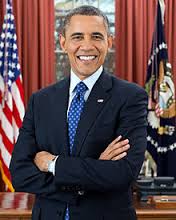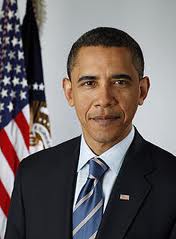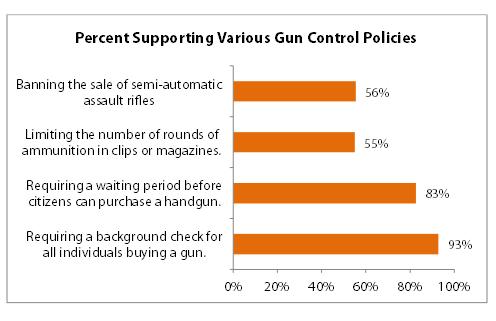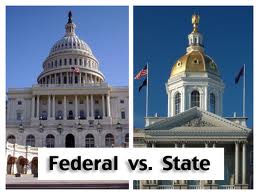Obama lost the gun debate recently. Now, there is some discussion as to whether he was playing politics or really trying to pass new regulations concerning the purchase of guns.
In either case, it’s hard to argue that he won or scored points.
And yeah, Obama smarted. He was visibly upset and even took offense to the notion that he used the Newtown families as props. “As if” he claimed.
But he did:
If you believe that politics were at play, that the plan was to pass the bill in the senate and then have it fail in house only to pin the republicans as killers, he failed. The senate is under democrat control and he couldn’t even get all of THEM to vote with him.
However, if you are less cynical and think that Obama was really trying to pass legislation that would impact guns and how they are bought and sold, well, again, he failed. Not one new regulation even moved out of the upper chamber for consideration by the house.
Why?
Well, Reid and Obama didn’t want debate:
A word, first, about that Senate “minority.” Majority Leader Harry Reid was free to bring the deal struck by West Virginia Democrat Joe Manchin and Pennsylvania Republican Pat Toomey to the floor for an up-or-down vote, and this background-checks amendment might have passed. It did convince 54 Senators, including four Republicans.
But under Senate rules, a simple majority vote would have opened the measure to up to 30 hours of debate, which would have meant inspecting the details. The White House demanded, and Mr. Reid agreed, that Congress should try to pass the amendment without such a debate.
No debate – no up-or-down vote.
Oh yeah, there is a ton of talk about the filibuster being used to defeat any gun legislation, but every time democrats bring that argument into play, it’s important to point out that Reid doesn’t allow amendments to bills he DOES bring to the floor:
Majority rules would have also opened the bill to pro-gun amendments that were likely to pass. That would have boxed Mr. Reid into the embarrassing spectacle of having to later scotch a final bill because it also contained provisions that the White House loathes. So Mr. Reid moved under “unanimous consent” to allow nine amendments, each with a 60-vote threshold.
The White House was right to worry. An amendment from John Cornyn of Texas that would have required all states to recognize every other state’s concealed-carry permits earned 57 votes, 13 Democrats among them. The nearby table has the list. On Thursday, Wyoming’s John Barrasso offered an amendment to protect gun ownership privacy that passed 67-30.
Obama didn’t want amendments.
And while the bill has language that prohibits the creation of a national registration, there was language that didn’t demonstrate intent:
Manchin-Toomey was rushed together on a political timetable, and a thorough scrub would have revealed that its finer legal points aren’t as modest as liberals claim. Tellingly, the White House blew up earlier negotiations with Tom Coburn on background checks. The Oklahoma Republican favored more and better checks across secondary firearms markets like gun shows and online, but liberals insisted that federally licensed dealers had to keep records.
But did the GOP do nothing but resist?
The Senate GOP offered an alternative background-checks amendment that failed 52-48. Nine Democrats were in favor, but their colleagues voted en masse to block it from moving forward. How’s that for incoherent?
Hardly.
Whatever Obama’s agenda was, political brinksmanship or honest to goodness legislating, he failed. And gun regulation is a biggie. Or was.









